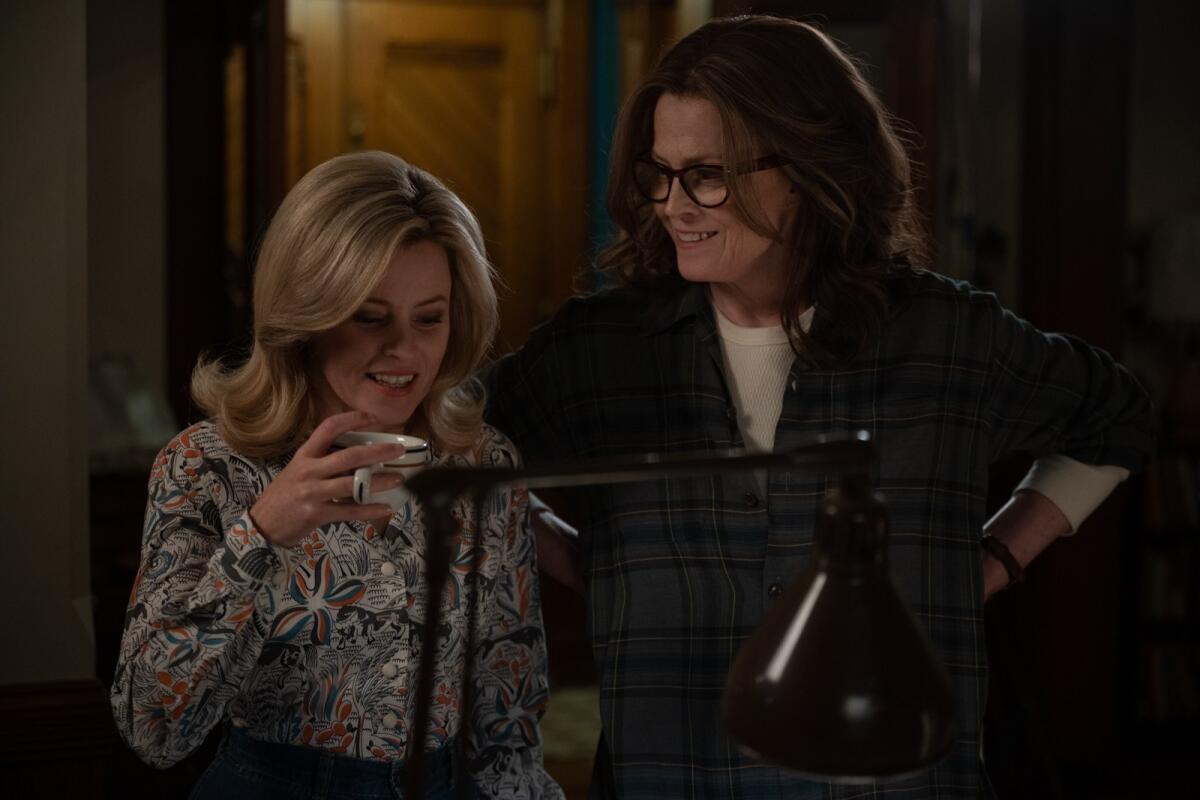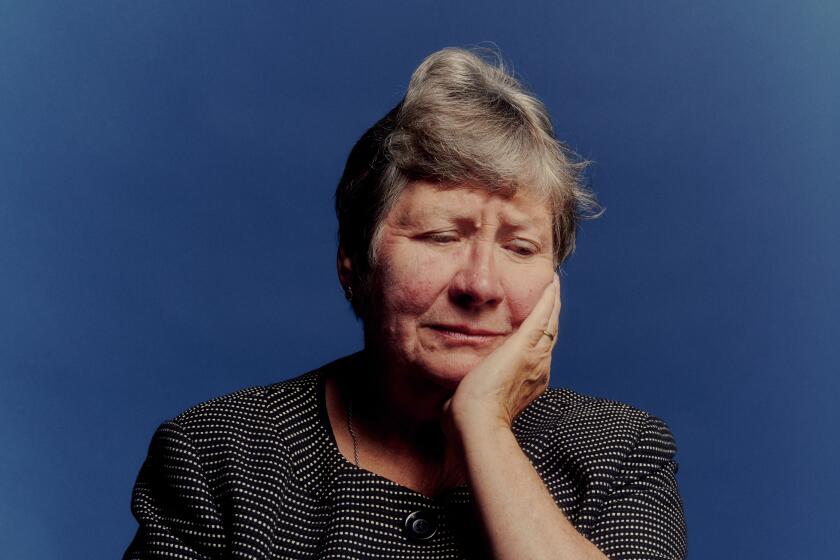Review: The characters in timely pre-Roe abortion drama âCall Janeâ never feel like people

âAre you Jane?â
Itâs a question that Chicago housewife Joy (Elizabeth Banks) repeatedly asks, as she calls a number from a flier, is picked up in a car, blindfolded, driven to a nondescript office where she receives an illegal but safe abortion from an unfeeling doctor (Cory Michael Smith), and then is cared for by an eclectic group of women. In this group, no one is Jane, but they are all Jane, the generic alias that shields their identities becoming the de facto name for this underground network of women providing abortion care in the years before Roe vs. Wade. In âCall Jane,â director Phyllis Nagy (Oscar-nominated screenwriter of âCarolâ), working from a script by Hayley Schore and Roshan Sethi, crafts an unconventional biopic, not of any real person but of Jane, the collective.
That âJaneâ was an alias, an avatar, is part of the problem with âCall Jane,â in which all of the fictionalized characters â Joy; Virginia (Sigourney Weaver), the organizer behind the group; Joyâs husband, Will (Chris Messina); her daughter (Grace Edwards); neighbor Lana (Kate Mara) â never feel like real people but indeed, avatars, merely representatives or devices to move the plot along.
For your safety
The Times is committed to reviewing theatrical film releases during the COVID-19 pandemic. Because moviegoing carries risks during this time, we remind readers to follow health and safety guidelines as outlined by the CDC and local health officials.
Joy is an opaquely written character, a housewife who is never able to fully express her own wants, needs and desires. Banks, working with limited material, delivers a distinctive and stealthily effective performance, using Joyâs inexpressiveness as a character trait. She plays Joy as withdrawn and soft-spoken. Despite her demure exterior, Joy quietly slides in sly barbs loaded with double meaning about the unfairness of her position, whether itâs her husband complaining about frozen meatloaf, or a panel of cartoonishly evil white male doctors denying her the right to the âtherapeutic terminationâ of a pregnancy thatâs threatening her life.
After Joyâs abortion, Virginia recruits her as a volunteer driver, and Joy is drawn to providing care to women in their time of need. She starts by comforting them during the procedure, eventually assisting the doctor, before finally demanding he teach her how to perform abortions herself. This is all a part of the Jane collectiveâs story, also depicted this year in the documentary âThe Janes,â streaming on HBO Max.
It often feels like âCall Janeâsâ largely excellent cast struggles against a shallow script and underdeveloped characters, their psychology and backgrounds unclear. As the women of Jane debate who they can assist, thereâs something that rings hollow, the dialogue landing like talking points rather than authentic human discussion. Nagyâs strength as a director, however, is in her patience with sensitive scenes. As Joy undergoes her procedure, each step and wince is painstakingly laid out, and in quiet but loaded moments between Joy and Will, the unspoken vibrates tellingly between them.
In HBOâs âThe Janes,â women who defied abortion laws in pre-Roe Chicago speak out: âThe true story is more dramatic than a fictional one.â
Greta Zozulaâs cinematography offers a period-appropriate warmth and grain to the film, and some unusual compositions make it visually fascinating at times. But thereâs also the unshakeable sense that something went awry in the edit, as certain suspenseful yet inexplicable moments are ushered in without fanfare and abruptly dropped, like a visit from an undercover cop (John Magaro) that goes to unexpected places, and then nowhere else.
The ending is abrupt, glossing over the real-life 1972 raid with an unexplained mention in passing. As the women celebrate the 1973 Roe vs. Wade decision, which renders their operation obsolete, the tone is frankly jarring. Though âCall Janeâ premiered at the Sundance Film Festival in January 2022, months before the Supreme Court overturned the landmark decision in June, itâs surprising that the film was not amended, at least with text at the end, to address that.
âCall Janeâ offers a heartening message about the long, ongoing legacy of women helping other women access abortion healthcare, legal or not. Though the film is politically and culturally urgent, itâs too much of a challenge to connect with the void of character at the core of this screenplay. We may all have the power to be Jane, but the image of Jane remains frustratingly hazy in Nagyâs depiction.
Katie Walsh is a Tribune News Service film critic.
'Call Jane'
Rated: R, for some language and brief drug use
Running time: 2 hours, 1 minute
Playing: Starts Oct. 28 in general release
More to Read
Only good movies
Get the Indie Focus newsletter, Mark Olsen's weekly guide to the world of cinema.
You may occasionally receive promotional content from the Los Angeles Times.











